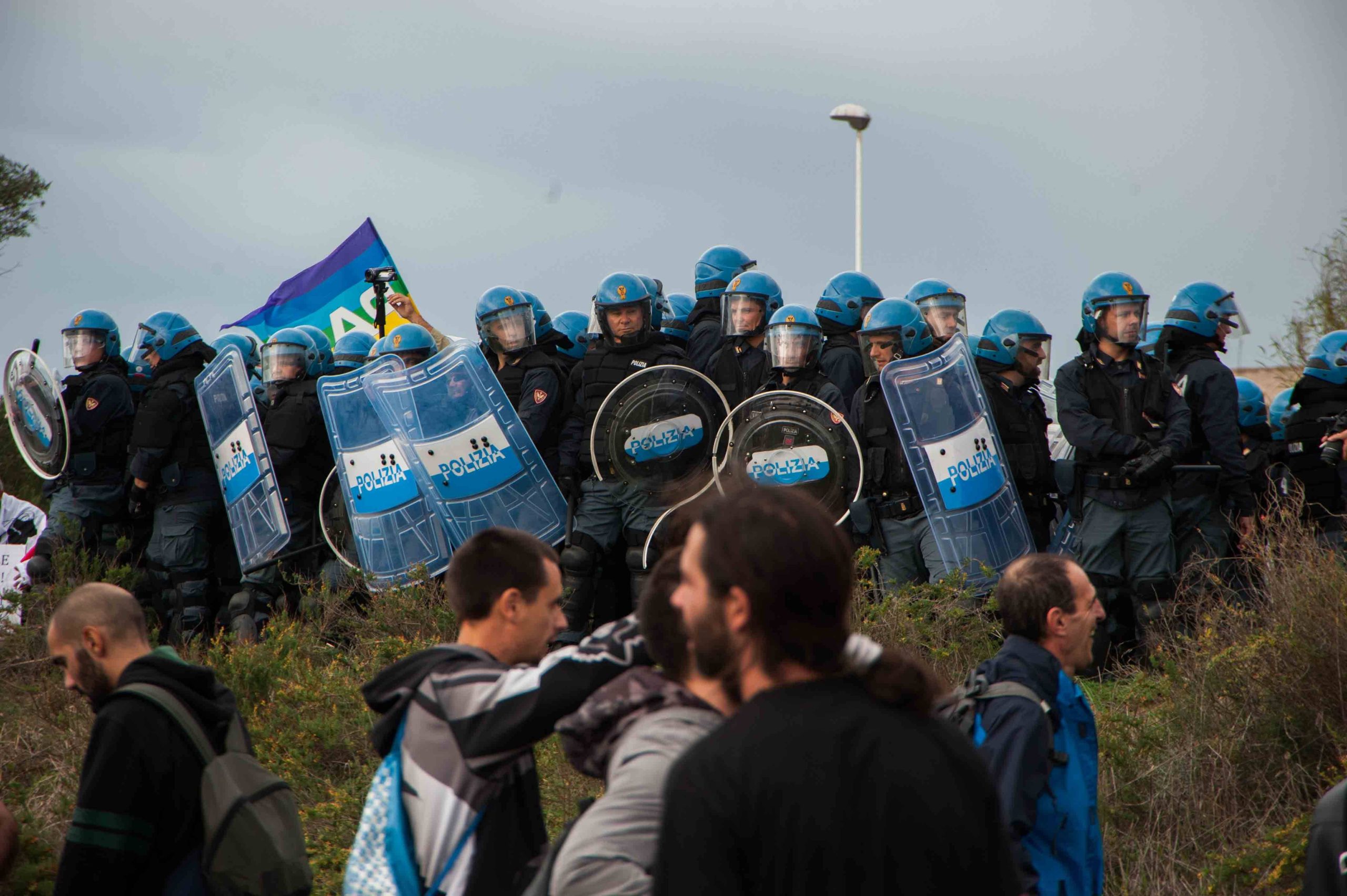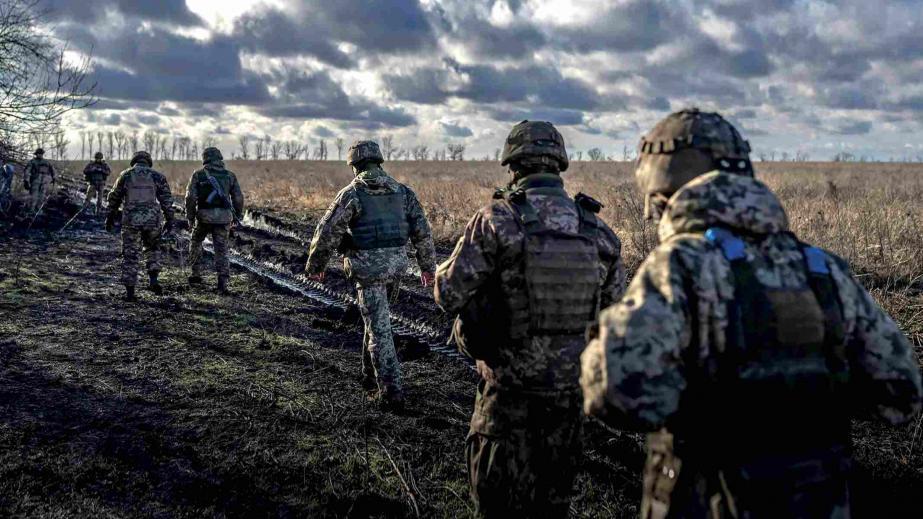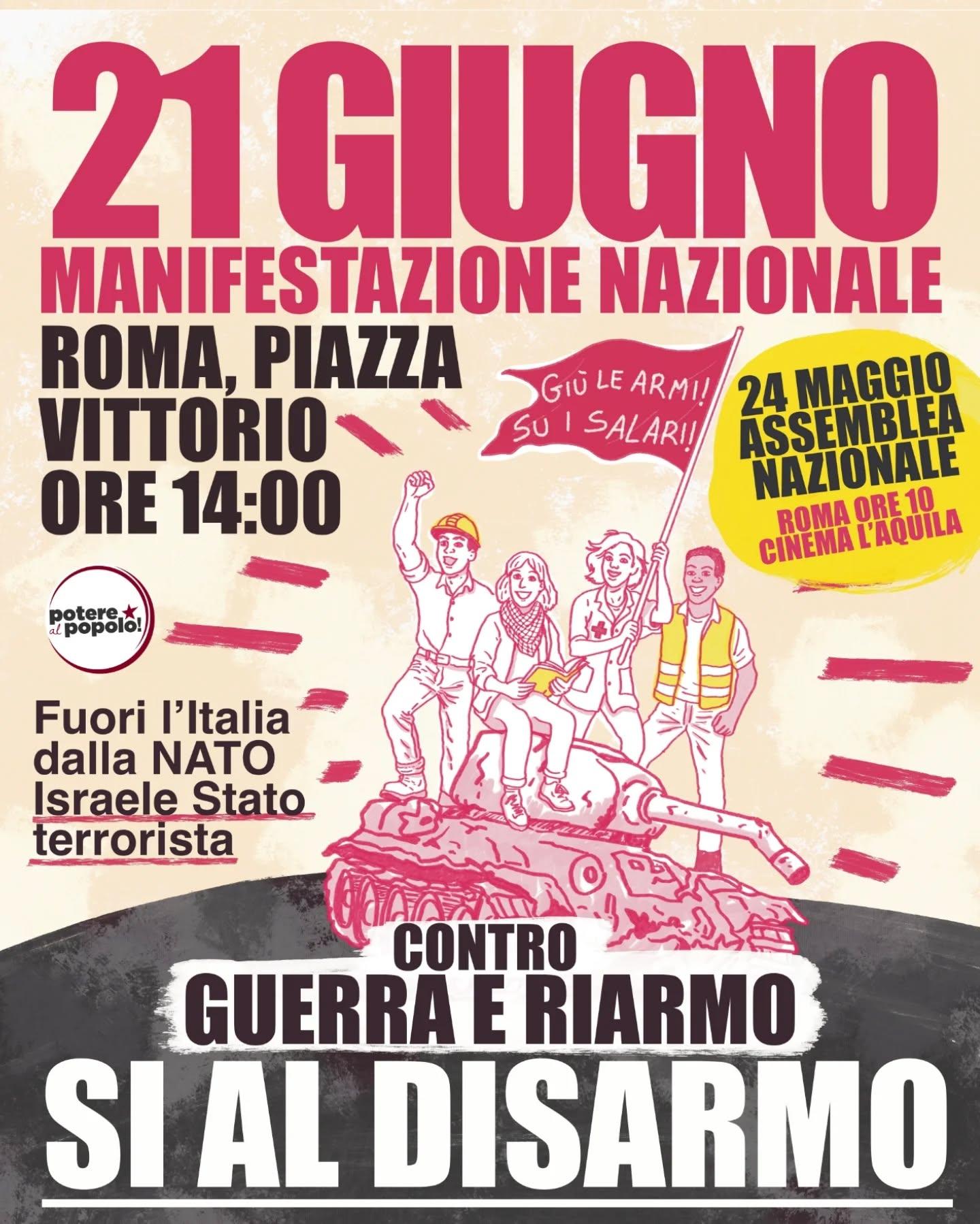
We are as much obstinate in cutting the fences as in deciding on our own land

benint dae lontanu, a si partire
sos fruttos, da chi si bruiant sa terra.
Isperamus chi prestu hat a finire
cust’istadu de cosas dolorosu:
meda semus istancos de suffrire
The vandals, with arguments and quarrels, / come from afar, to share among themselves / the spoils, because they burn the land. // We hope that soon will be over / this painful state of things: / we are really tired of suffering
Peppino Mereu, A Nanni Sulis II, around 1895
Teulada military shooting range, southernmost end of the island of Sardinia, in the middle of the Mediterranean Sea. The most impressive exercise of NATO military forces since the Cold War was hindranced, halted and blocked in the afternoon of November 3: an oppressed world, made by men and women, broke in there during the preparation of a machine of destruction that devours its own stage…that after all is our own world, that one which is fenced outside and sideways. They decided to rent a piece of Mediterranean Sea, in order to organize themselves. Same difference but, in the months in which it is not devoured by tourism, this bare and empty corner is better; better Sardinia, the most militarized territory in Europe. With determination, participation and some wire cutters in hand, a part of their plans was dashed, and their investments were wasted. For the first time, NATO also invited companies producing weapons and technological solutions for Defence to attend the military operations – in order to integrate the producer in the process of consumption of the military goods as well.
One year and almost two months after the demonstration that violated another military range, the Capo Frasca one (close to Oristano), other fences were torn. We neither believe to be facing an antimilitarist movement, nor some independentist perspective to be reinforced by the day of tuesday. Even if the political components that are most close to these players generously contributed to the construction of the day of struggle, no one has the ingredients available, in order to cook their own recipe. Everything is on the table, instead. Politics, as a separate form of construction of and interaction with social phenomena, can be certainly red between the lines in the troubled affairs of changing fortunes of the activity of dozens and dozens of militants – with respect and admiration. Which, thanks to their effort and sacrifice, built a real continuity of process during this year: from the April walk along the perimeter of the Teulada base to the clashes at the fences of the Decimo base against the Starex in June – till the march in Cagliari some week ago. This progression left open the possibility of confirmation for a widespread and composite availability to march and fight against the awful abuse of a land which was provocatively displayed, as the stocks of bombs to be exported through a cargo plane to Saudi Arabia – the main customer of the Italian war industry. Some random goods exposed on the airstrip of the civilian airport of Cagliari-Elmas, among the low-cost flight planes on the taxiways – which in this period of the year, rather than of tourists, are full of Sardinian migrants, forced to suffer the umpteenth offense behind the plane window. The visible manifestation of an impotence raises scandal, again, and the will to strike back, organize, clash; as it happened for the fire caused by the missiles which exploded on the Capo Frasca hills in September 2014, only a few hundred meters from the bathers. This is the first relevant given. A confused one, ambiguous, moody but overbearing, social and able to assert itself as public discourse and common sense among a wide share of the population.
Sardinia – that was looted (first industrialized then poisoned and de-industrialized), fenced in order to be bombed, burned and pulverized, suffers a pervasive military presence as an integral apparatus of pillage of territory and lives. Because if you do not see from your house the fences of the nearest military area, that military area enters your house, your family, in that relative everyone has; that brother, sister, cousin that upon his/her 18th-20th birthday tries the VFP1 (1-year voluntary draft): because a desert was produced around them, and because that is the most close form of guaranteed income. In order to survive into a society that managed to integrate within a commodified form of the human character even the most hostile caves of the Island. We really have no poetry to spend about that. Perhaps that relative was the same soldier that on tuesday was guarding the fences of Teulada, at the service of those who were training themselves; and that, even if he did not care about the uniform that much and only needed a bit of cash, you still have a hard time in recognize – for how he reasons now, as one akin to you that takes up arms against you. Because it has been a while that the army morphed too much into police, and the police grew too militarized. They took away even him from you. A violence asserts itself first of all by determining that you have no future in your own land: one that is only good, according to the necessities, to be either targeted by missiles or completely sold to the Chinese, in order to invest in hectares and hectares of solar greenhouses that scars any panorama once engraved in the memories beyond repair. The military one is a comprehensive apparatus of pillage that exploits a territory through its destruction. Here it is not the State to supervise some total processes, just because it directs very few ones at the military level – in particular when the military makes a productive cycle of the war good out of itself, as confirmed by the NATO armies’ Trident Juncture. Maybe the State is just content of a presence, in order to contain collective social behaviours in the form of police enforcement on the territories, to guarantee that the territories themselves do not interfere with the way of their capitalist ab-use.
It seems to us that the extraordinary day of struggle last tuesday managed to throw in crisis this two-fold framework: the linearity of a model of valorization/destruction and the normalization of its acceptance. This is the second, remarkable, given. In order to suspend the exercise, to throw in crisis a great investment of capital in the Trident Juncture – and therefore represent a problem that could not be set aside for a higher echelon in respect to the territory but that actually rules over it – it was necessary to violate the perimeter of the shooting range. In order to violate the perimeter of the shooting range, it was necessary to violate – in turn – the police bans that tried in these months (and particularly in the last weeks and days) to clumsily contain a political will that cannot be integrated back in the system anymore; one able to establish an exchange between the unbearability of the usurpation of a territory and of other human possibilities within it. The obstinacy in breaking the fogli di via (expulsion orders) and to still demonstrate in the municipalities of Sant’Anna Arresi and Teulada; to march against the police department demonstration ban; to go to free the demonstrators which were detained for several hours on the buses; to crack the checkpoints open; to outflank the police lines; to force the latter to run after the demonstrators, to charge in the dirt road and in the mud; and above all to never give up in approaching the fences in order to cut them and enter the shooting range to damage the counterpart: all of this is the antagonist result of a true day of people struggle. Some inflexible attitudes that were maintained till the end and that allowed to produce an important disruption; one that poses new conditions, resolves some issues and opens up to new problems and perspectives.
The importance and the political value of disruption is certainly the third distinguishing trait that the day of struggle of yesterday leaves as its legacy. The scenario changed. New histories begin. Whoever imagined to exploit Capo Frasca’s long tail in order to bog down its push in a hypothesis of referendum against military easements (in order to self-represent themselves at the expenses of collective expectations and destinies) now clearly remains in the background. A new subjectivity emerges, one strengthened by the joy of having conquered the enemy, of having violated its spaces; thanks to self-questioning about the issue, in order to truly influence a real framework by nurturing disruption. These protagonists of a people’s battle demand future developments up to the challenge which was posed last tuesday, that not necessarily would retain the same intensity and that probably would also have to engage the complexity of the many territories of Sardinia – from the devastated Sulcis to the regional capitol of Cagliari. Which are the new disruptions to be built on the struggles, in order to gain more decision power on our own land and life, after the Trident, outside the bases? There are no run-off-the-mill solutions, only challenges to be organized, by continuing to dare with that same obstinacy when we aimed directly to the fences.
Autonomous comrades from a corner in the middle of the Mediterranean Sea
Ti è piaciuto questo articolo? Infoaut è un network indipendente che si basa sul lavoro volontario e militante di molte persone. Puoi darci una mano diffondendo i nostri articoli, approfondimenti e reportage ad un pubblico il più vasto possibile e supportarci iscrivendoti al nostro canale telegram, o seguendo le nostre pagine social di facebook, instagram e youtube.




















